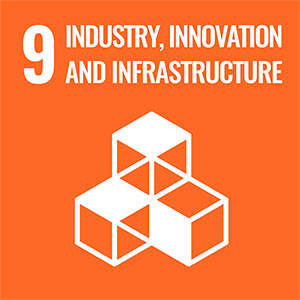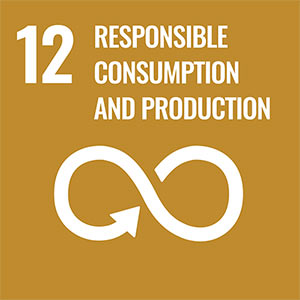MSc Industrial Management
The master's programme in Industrial Management targets students with a profound engineering background who aim to take leadership positions in industrial and technology-based organisations. Students acquire an understanding of value creation and specialise in areas such as management, leadership, supply chain, industrial transformation, managing research and innovation, strategy and industrial marketing. The programme has extensive industry interaction throughout.

Industrial Management at KTH
The programme's main focus is understanding the creation of value for customers. We address this issue at three different levels.
- Firstly, the industry level, where the focus of attention is the economic and technical transformation in national and global markets.
- Secondly, the firm level, which focuses on the management of value-creating functions and processes such as research and development, operations and sourcing and marketing and distribution.
- Thirdly, the individual level, which focuses on the people leading change.
The programme consists of several tailored courses exclusively provided for the programme. They form a detailed understanding of the three levels of value creation and the interrelation between them. The learning process throughout the programme is enhanced by the integrated design of the compulsory courses – where case assignments, problem-based learning, and interaction with the industry are of central importance. The programme is designed around a number of mandatory courses covering theoretical knowledge and skills related to managing key functions in industrial organisations. Furthermore, the individual and the industrial level of analysis are also covered, providing you with the capability to handle industrial challenges from a systems perspective. Through the elective courses, you can specialise in a number of areas such as management, control, supply chain, project management, economics and leadership.
The programme takes pride in having close contact and frequent interaction with industry leaders and their organisations. For example, all courses have guest lecturers from the industry. Moreover, interview assignments, study visits and industrial projects are core activities in the curriculum, preparing you to take on leadership positions in industrial and technology-intensive organisations after completing the programme.
This is a two-year programme (120 ECTS credits) given in English. Graduates are awarded the degree of Master of Science. The programme is given mainly at KTH Campus in Stockholm by the School of Industrial Engineering and Management (at KTH).
Courses in the programme
The courses in the programme cover topics such as finance and control, project management, leadership, operations and supply chain strategy, strategy and industrial marketing, industrial transformation, managing research and innovation, research methods, change project.
Courses in the programme Industrial Management
Future and career
The master's programme in Industrial Management offers a unique opportunity of combining and developing comprehensive engineering knowledge with advanced management and leadership skills. This particular combination is very attractive for most industrial businesses worldwide. After completing the programme, you will have developed relevant skills to take on a technology/management consultant role or a functional/project managerial position in international technology-based firms.
Sustainable development
Graduates from KTH have the knowledge and tools for moving society in a more sustainable direction, as sustainable development is an integral part of all programmes. The three key sustainable development goals addressed by the master's programme in Industrial Management are:



The overarching approach to sustainable development in the programme is based on three design principles:
- Creating a common knowledge base among all students at the start of the programme. This part is based on materials and content from the KTH Sustainability Office.
- Integrating sustainable development in mandatory courses to equip you with knowledge about and expertise in sustainable development close to the application area of each subject area (for example, supply chain strategy).
- Applying a solid focus on sustainable development in the programme's integrative courses, projects, and degree project. Making sustainable development a mandatory part of research conducted by students at master-level represents the programme's core strategy in going beyond "studies about sustainable development" towards "studies in sustainable development".
Among the 17 sustainable development goals, the three goals listed above represent central focus areas related to the different levels of the programme – the individual, functional and industrial. As early as in the programme's first course, you will conduct a case study focused on gender and diversity. Here you will meet researchers who specialise in this field, discuss with industry experts and conduct a case-based investigation on the individual level. There is also a focus on the footprint of production activities in, for example, the subject area of operation and supply chain strategy, where sustainable development is part of both casework and game activities – representing typical challenges at the functional level. Finally, the sustainability goals of industry, innovation and infrastructure represent areas where engineers and industrial companies must take a dominant role in investigating how we can transition our society toward a sustainable future. In courses such as industrial dynamics and technical change and managing research and innovation, the pressure for change, for example, from global warming, represents a starting point for how we need to transform industrial activities, business models and leverage innovation to meet climate goals.
Faculty and research
The department of Industrial Economics and Management coordinates the Industrial Management master's programme and contributes to all mandatory courses. Through these courses, you will meet with professors from all three research units at the department, which are:
- Accounting, Finance & Changes (AFC)
- Management and Technology (MT)
- Sustainability, Industrial Dynamics and Entrepreneurship (SIDE)
The programme curriculum integrates research conducted at the department in most courses. On an overall level, research at the department falls within four themes:
- Structural transformation and growth
- Business creation and development
- Operations control and finance
- Leadership, work and organisation



